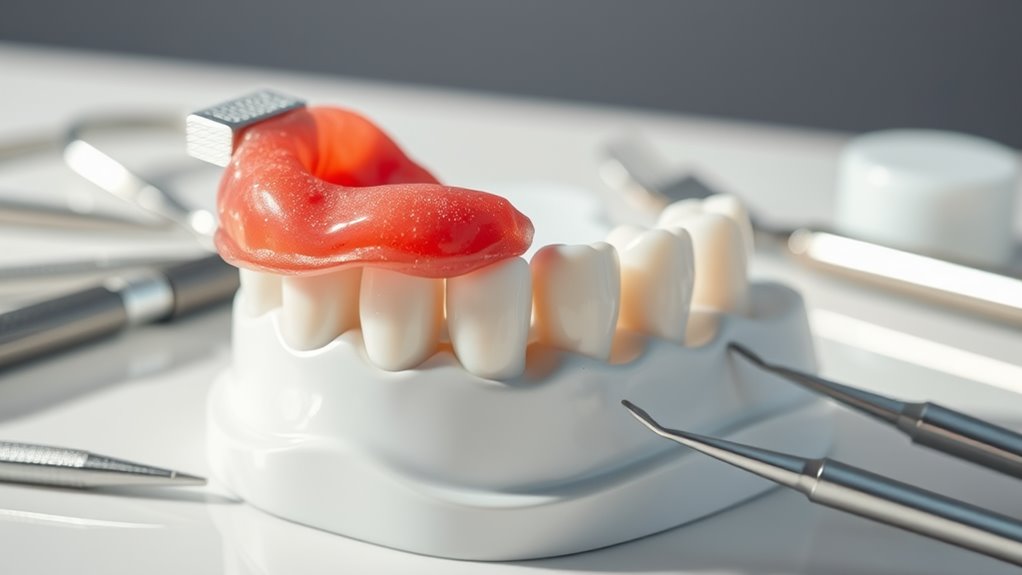Dealing With Teething- What Parents Should Know
Dealing with teething can be a tough journey for you and your little one. It’s common for babies to experience irritability, excessive drooling, and disrupted sleep during this time. Fortunately, there are various methods to ease their discomfort. Understanding the signs of teething and knowing how to soothe your baby effectively can make all the difference. But what should you really look out for, and what techniques can help?
Key Takeaways
- Teething symptoms include excessive drooling, irritability, and tender gums, which may disrupt sleep and appetite.
- Utilize cold washcloths or frozen fruit in mesh feeders to soothe gum discomfort effectively.
- Choose safe, non-toxic teething toys made of silicone or rubber for chewing relief.
- Monitor for signs like persistent fever or excessive crying to determine if pediatric consultation is needed.
- Natural remedies, such as gently massaging gums or offering chamomile tea, can provide additional comfort for teething infants.
Signs Your Baby Is Teething
When your baby starts teething, you might notice several telltale signs that indicate discomfort and the arrival of those tiny teeth. Common symptoms include excessive drooling, irritability, and the urge to chew on everything in sight.
You may also spot swollen or tender gums and a slight increase in fussiness. Some babies even experience changes in sleep patterns or appetite.
To help navigate this challenging time, keep these teething tips in mind: provide safe teething toys, offer cold cloths for gum relief, and monitor their symptoms closely.
Understanding these signs can prepare you for the teething journey ahead.
Soothing Techniques for Teething Pain
When your baby is teething, finding effective ways to soothe their pain is essential.
You can explore natural remedies that provide relief while considering teething toys specially designed for this challenging time.
Let’s discuss some of the best options to help your little one feel more comfortable.
Natural Remedies for Pain
Teething can be a challenging time for both you and your little one, but there are effective natural remedies to help soothe the pain. Here are some methods you might consider:
| Remedy | Description | Benefits |
|---|---|---|
| Cold Washcloth | Dampen a washcloth, freeze it. | Provides relief and numbing. |
| Chamomile Tea | Brew chamomile tea, cool it down. | Natural calming effect. |
| Coconut Oil | Rub a small amount on gums. | Moisturizes and eases discomfort. |
These remedies can be simple yet effective ways to alleviate your baby’s teething pain while offering comfort and support.
Teething Toys Recommendations
As you explore natural remedies to ease your baby’s teething pain, incorporating teething toys into your soothing routine can be quite beneficial.
Look for soft, pliable toys made from safe, non-toxic materials. Silicone and rubber options are great, as they’re durable and easy to clean. Some toys come with textures designed to massage gums, providing extra relief.
Chilled teething rings can also help numb sore spots. Make sure the toy’s size is appropriate to prevent choking hazards.
Always supervise your baby while they’re teething, ensuring they’re safe and comfortable during this challenging time. You’ll find the right toys can offer considerable comfort.
Natural Remedies to Ease Discomfort
Although the teething process can be uncomfortable for both you and your baby, several natural remedies can offer significant relief. Try some of these options:
| Remedy | Description | Effect |
|---|---|---|
| Cold Washcloth | Freeze a damp cloth for chewing | Provides soothing numbness |
| Chamomile Tea | Offer cooled tea in a bottle | Calms and reduces pain |
| Gentle Massage | Rub gums with clean fingers | Encourages circulation |
| Frozen Fruit | Freeze fruit in a mesh feeder | Relieves pressure |
Teething Toys: What to Choose
Choosing the right teething toy for your little one can make a world of difference in easing their discomfort.
Opt for soft, textured materials that are gentle on their gums, like silicone or rubber. Look for toys that are free of harmful chemicals and are easy to clean.
You might consider options with different shapes to stimulate their gums effectively. Some parents find that refrigerating a teething toy provides extra relief.
Always supervise your child while they’re using a teething toy to ensure safety. With the right choice, you can help comfort your baby during this challenging phase.
When to Consult a Pediatrician
If your child has a persistent high fever or shows severe irritability during teething, it’s crucial to consult a pediatrician.
These symptoms could indicate that there’s more going on than just teething discomfort.
Trust your instincts; seeking professional advice can help ensure your child’s well-being.
Persistent High Fever
When your baby is teething, a persistent high fever can be concerning. While teething may cause slight increases in body temperature, a fever over 100.4°F warrants attention.
If your baby’s fever lasts more than 24 hours, or if it’s accompanied by other symptoms like rash, diarrhea, or difficulty breathing, it’s time to consult your pediatrician. These could indicate an underlying illness unrelated to teething.
Trust your instincts as a parent; if something feels off, don’t hesitate to seek professional advice. Your baby’s health is paramount, so staying informed can help you navigate this challenging stage with confidence.
Severe Irritability Signs
While teething can naturally make your baby fussy and irritable, it’s important to recognize the signs of severe irritability that may require a pediatrician’s attention. Watch for excessive crying, refusal to eat or drink, severe restlessness, or unusually clingy behavior. If your baby shows any of these signs for extended periods, consult your pediatrician.
| Warning Sign | Action Required |
|---|---|
| Excessive Crying | Immediate pediatrician visit |
| Refusal to Eat/Drink | Call pediatrician for advice |
| Extreme Clinginess | Monitor closely, consult if persists |
| Severe Restlessness | Contact your pediatrician |
Tips for Managing Nighttime Teething Issues
As your little one fights discomfort during nighttime teething, it’s crucial to have strategies in place to help soothe their pain and promote restful sleep.
Start by gently massaging their gums with a clean finger or a cool, damp washcloth. Consider using a teething ring, ideally chilled but not frozen, to ease inflammation.
Maintaining a calming bedtime routine can also work wonders; try a warm bath or soft music.
If over-the-counter pain relief is appropriate, consult your pediatrician first.
Lastly, be patient. Comforting your baby during these tough nights can bring you both closer, helping them feel secure and loved.




